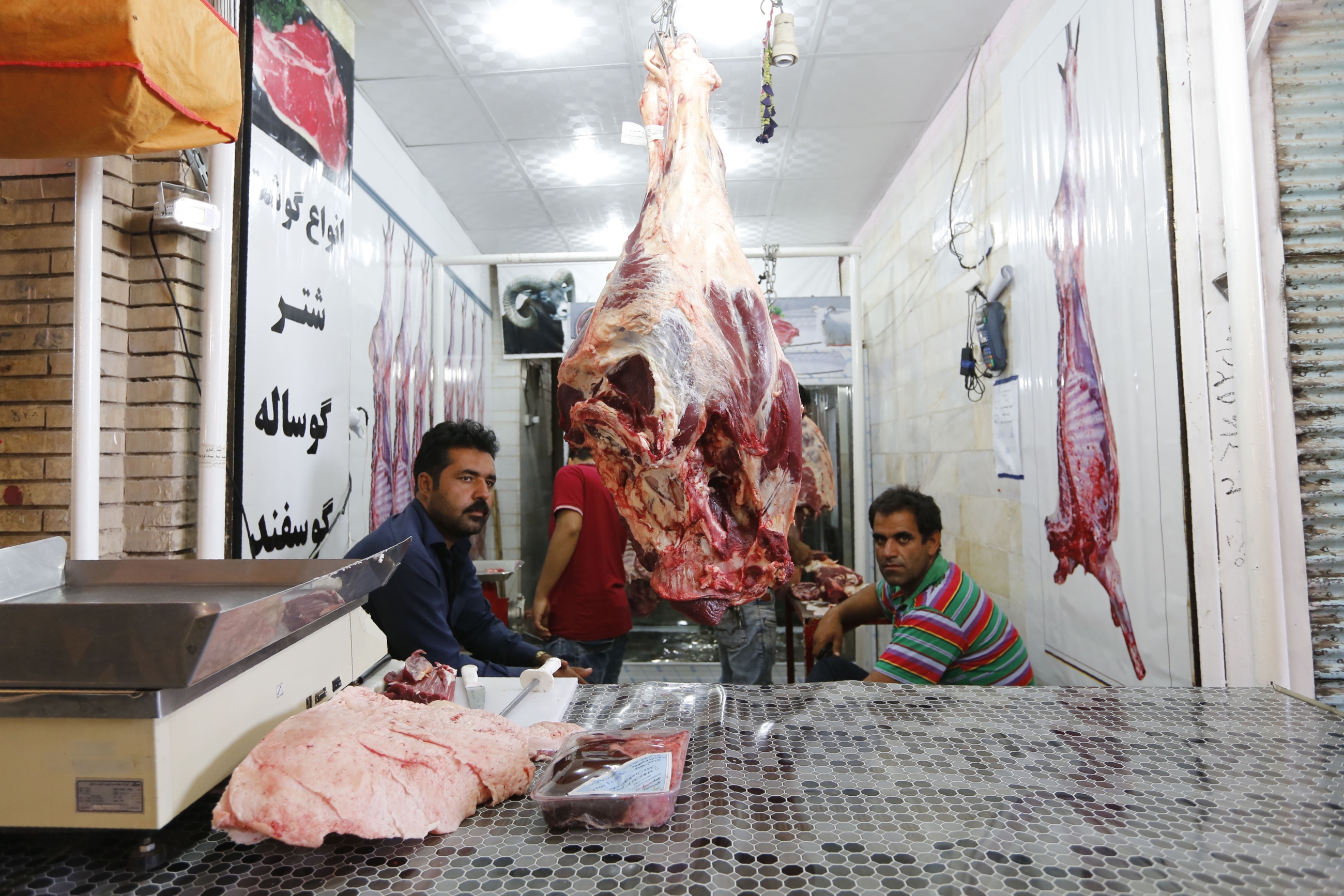Iranian press review: Meat and movies bear brunt of sanctions and corruption

Government mismanagement of meat
Since the re-imposing of US sanctions against Iran, ordinary Iranians have faced a sharp rise in the price of food, with the cost of meat rising 50 percent since last year.
Meanwhile, Iranian media has blamed President Hassan Rouhani’s administration for mismanagement of the meat market under the sanctions.
On 12 February, the Jahan-e Sanat economic daily ran an in-depth analysis describing how misguided decisions made by Rouhani’s economic team have fuelled food price inflation.
Plans such as managing distribution online or providing subsidies to importers not only have not solved the problem but also have caused more chaos in Iran’s meat market, according to experts that spoke to Jahan-e Sanat.
Stay informed with MEE's newsletters
Sign up to get the latest alerts, insights and analysis, starting with Turkey Unpacked
“The officials say that one kilo of beef costs 850,000 [Iranian] rial ($20.19), however a stroll in Tehran shows the price in some neighbourhoods is as high as 1,100,000 ($26.13),” the daily reported.
One kilogram of chicken is about 150,000 rial ($5.60) in the capital Tehran, and the price of fish has also increased in recent months. According to Iran’s Young Journalist Club, one kilogram of the Caspian white fish is 500,000 rial ($11.88) in Tehran’s fish market.
Iranians condemn Trump’s Farsi tweet
A tweet by Donald Trump in Farsi, slamming Iran’s leaders on the 40th anniversary of the Islamic Republic's revolution, has stirred anger among ordinary Iranians suffering from US sanctions.
On 12 February, Yalda Moaiery, the photographer who took an iconic image of a demonstrator near Tehran University during the 2018 protests, stated her discontent with Trump using her image for the anti-Iran tweet.
“It would be a great honour for me if this image would be a symbol of freedom everywhere in the world,” Moaiery wrote on Instagram in English.
“But having President Trump use it without my permission in a tweet, in Persian, is a great shame for me and causes me deep sorrow.”
Moreover, the award-winning photojournalist criticised Trump for imposing new sanctions on Iran and the travel ban order.
“Because of his policies I, my family and my friends are forced to live under sanctions that are devastating our lives,” she wrote.
Zia Nabavi, an Iranian activist who served a nine-year sentence after the 2009 demonstrations, also denounced Trump’s tweet.
“Life has never been so difficult and without bright horizons, since you became the US president,” Nabavi wrote on Twitter.
“So president, please leave this gesture of being a sympathiser to our pains!”
‘Shah gone but living kingly goes on’
On the day marking the 40th anniversary of the 1979 revolution, political factions in Iran took the opportunity to attack one another and accuse their domestic rivals of losing their "loyalty to values of revolution."
On 6 February, a piece in the Qhanoon with the headline "Shah gone but living kingly goes on" blamed Hassan Rouhani’s government for economic hardships and condemned members of his government for "living like kings".
Furthermore, the paper quoted Iranian hardline legislator Naser Mousavi Largani warning Rouhani over disappointing his supporters due to high inflation rates and a staggering drop in the value of the country’s currency.
“Along with this wave of hopelessness and at the same time when the prices of foreign currencies, gold and accommodation are skyrocketing, photos of you entertaining in Tochal [mountain sports complex] and photos of your first vice president’s birthday at Saad Abad Palace have caused pain to everyone,” he said.
"People did not dismiss the Shah to see some members of the Islamic Republic live like kings in northern Tehran and send their children to [live in] Switzerland and Canada.”
Dirty money in Iranian cinema
After the closing ceremony of Iran’s 37th Fajr International Film Festival on 11 February, a flood of speculation was raised about dirty money in the Iranian film industry.
It’s not the first time that money laundering in cinema has come to the attention of Iranians, but the latest debate comes as the country is facing one of its worst economic crisis.
Hamdely reported about this phenomenon in Iran, tracing it back to the time of ex-president Mahmoud Ahmadinejad when cinema was a vital means for his propaganda apparatus.
The daily also interviewed a sociologist, Aman-allah Gharaei Moghadam, who believes that if dirty money continues to be pumped into Iran’s film industry, "cinema will stand against the [will of] people."
“We should keep in mind that at one end of this story are a few monopolists who enjoy the current [economic] situation, and at the other end are the ordinary people who are constantly being robbed of their money,” Gharaei Moghadam said.
Iranian art films have been internationally acclaimed and Iranian directors such as Bahman Kiarostami, Amir Naderi and Bahman Ghobadi have been honoured in international film festivals.
Iranian director Asghar Farhadi is the only Middle Eastern filmmaker who has received two Academy Awards for Best Foreign Language Film.
* Iranian press review is a digest of reports that are not independently verified as accurate by Middle East Eye
Middle East Eye delivers independent and unrivalled coverage and analysis of the Middle East, North Africa and beyond. To learn more about republishing this content and the associated fees, please fill out this form. More about MEE can be found here.

